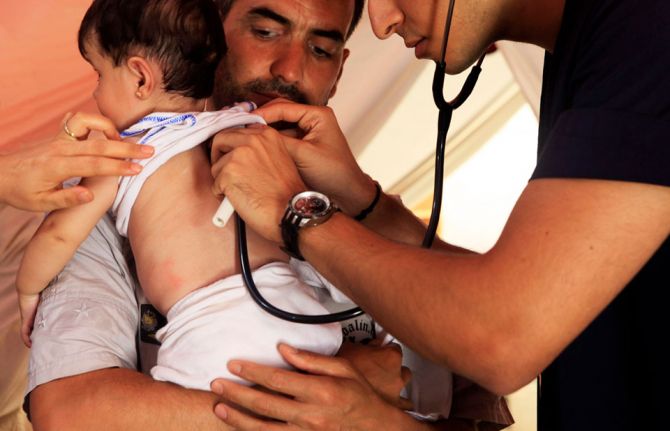

Press Statement
UNAIDS commends Portugal’s decision to grant temporary residency rights for immigrants and asylum seekers
02 April 2020 02 April 2020GENEVA, 2 April 2020—UNAIDS warmly welcomes the decision made by the Portuguese Government to grant temporary residency rights to all immigrants and asylum seekers who applied for residency in the country before 18 March 2020, when the state of emergency for COVID-19 was announced. These rights will give immigrants and asylum seekers access to social and health benefits, including access to the national health service, bank accounts and work and rental contracts, until at least 1 July 2020.
“UNAIDS is urging all countries to adopt a human rights-based approach in responding to COVID-19 that puts people at the centre and respects the rights and dignity of all,” said Winnie Byanyima, Executive Director of UNAIDS. “Portugal has demonstrated leadership and compassion by prioritizing these measures to protect the most vulnerable when responding to COVID-19.”
Migrants face the same health threats to COVID-19 as host populations and must be included to ensure an effective response that addresses both the health and socioeconomic impacts of the pandemic. Migrants and other key and vulnerable populations are often unable to access health and social services owing to fear of deportation, financial costs, legal constraints, language barriers, exclusion and fear of stigma and discrimination. Removing the barriers that prevent people from seeking medical and social care will improve broader public health outcomes, uphold the human rights of the most vulnerable and create a stronger, more effective and more equitable response to COVID-19.
Portugal has pioneered a human rights-based response to HIV since the outset of the epidemic, creating enabling legal environments, enacting progressive drug policies and making HIV treatment free for all, regardless of a person’s migration status. Portugal continues to lead today, driving community-based care models and promoting better integration of health-care services.
To help guide governments, communities and other stakeholders in planning and implementing measures to contain COVID-19, UNAIDS has produced a new guidance document that draws on key lessons from the response to the HIV epidemic, Rights in the time of COVID-19: lessons from HIV for an effective, community-led response.
UNAIDS
The Joint United Nations Programme on HIV/AIDS (UNAIDS) leads and inspires the world to achieve its shared vision of zero new HIV infections, zero discrimination and zero AIDS-related deaths. UNAIDS unites the efforts of 11 UN organizations—UNHCR, UNICEF, WFP, UNDP, UNFPA, UNODC, UN Women, ILO, UNESCO, WHO and the World Bank—and works closely with global and national partners towards ending the AIDS epidemic by 2030 as part of the Sustainable Development Goals. Learn more at unaids.org and connect with us on Facebook, Twitter, Instagram and YouTube.
Contact
UNAIDS GenevaSophie Barton-Knott
tel. +41 22 791 1697
bartonknotts@unaids.org
UNAIDS Media
tel. +41 22 791 4237
communications@unaids.org
Our work
Press centre
Download the printable version (PDF)
